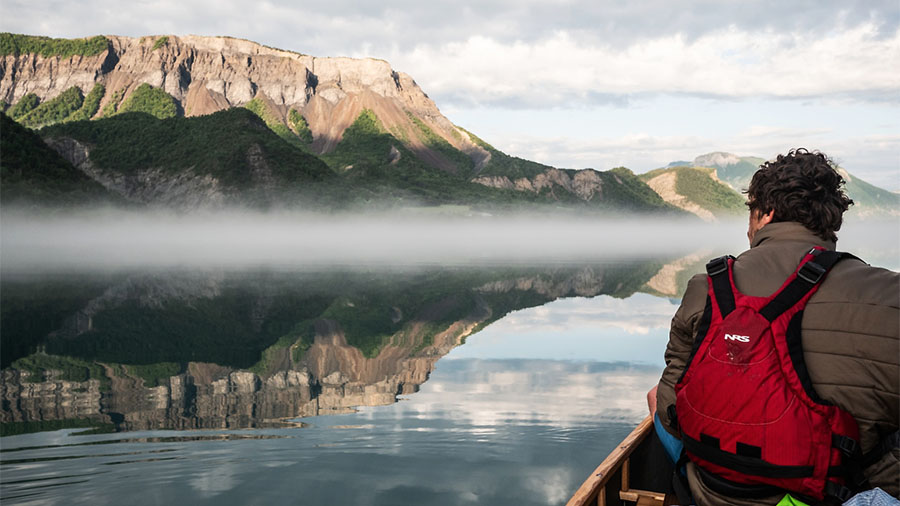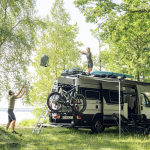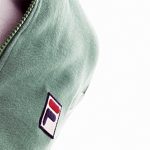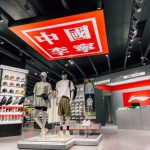The irony is hard to ignore. Many of today’s paddlecraft are made from plastic and/or resins that aren’t exactly good for the planet. Every time they hit the water, so are the chemicals associated with them. Packaging and shipping these behemoths to retailers and customers also requires a large carbon footprint. More and more companies in the category have embraced Mother Earth and are weaving sustainability initiatives into their products, from using eco-friendly materials to better manufacturing and shipping practices.
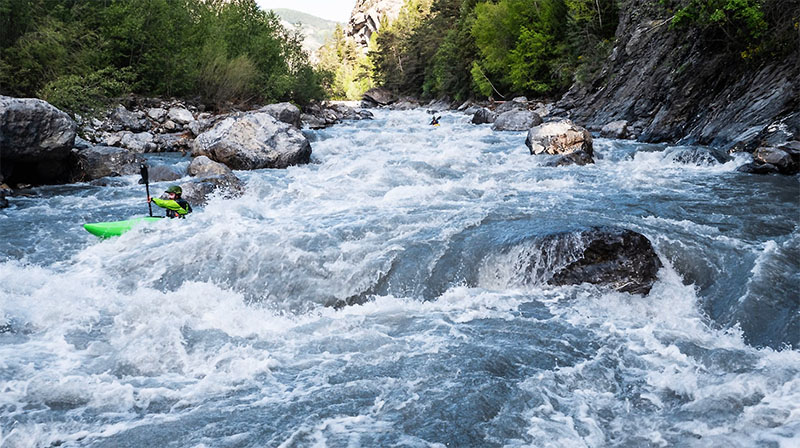
Pelican International/Confluence Outdoors
Confluence Outdoors—recently purchased by Laval, Quebec’s Pelican International and whose brands include Dagger, Perception, Wilderness Systems, Wave Sport, Mad River Canoe, Harmony Gear, and Boardworks—is arguably the market leader in paddlecraft and, by sheer volume, pollutants. But it’s doing what it can to lessen its environmental footprint.
“Sustainability is a huge focus for both locations, both in Quebec and here in South Carolina,” said Brand and Product Director Don Meredith. “There’s always work to be done, but I’m pretty proud of what both entities are doing.”
He said that all of Confluence’s boats are made of recyclable PE, with zero resin waste in its facilities in Greenville, S.C., and Montreal. “In both locations, all cut-outs, trims, and other remnants go back for recycling, which we use for parts,” he said, adding that shipping corrugate is also collected and recycled.
He added that the Montreal team uses a lot of rivets in their products, the majority of which are recreational kayaks. So it recycles all of the pop pins that are left behind. It also uses a technique resulting in zero foam waste from its in-house cut foam. “We reuse as much as we can with different parts, but the final waste is collected and donated to an organization that redirects it to items like insulation and dog bed fill,” said Meredith.
Northwest River Supplies (NRS)
NRS has had several recent developments in its sustainability journey, said Sustainability Officer Mike Barker. “Over the last 18 months, we’ve removed all single-use poly bags from our layering apparel, dry-wear, PFDs, gloves, and footwear. In doing so, we’ve made drastic changes in the delivery chain to ensure that products are protected and treated with care to mitigate the risk of product damage. And we’re working with, and educating, our suppliers, vendors and partners regarding proper packaging, care and ways to further eliminate, or reduce, waste,” said Barker.
In 2022, 80 percent of its apparel textiles will move to post-consumer recycled materials, from its high-volume, silkweight sun-protective apparel to recycled Gore-Tex Pro dry wear line.
“Overall, we’re making some serious strides to reducing our impact on the planet and our waterways,” Barker continued. “While we’re in the infancy of our sustainability journey, we’re making fast progress. Our team is committed to leading with our values, and we’ve embraced our ability and responsibility to make our products with minimized impact. We’re committed to sustainable design and practices.”
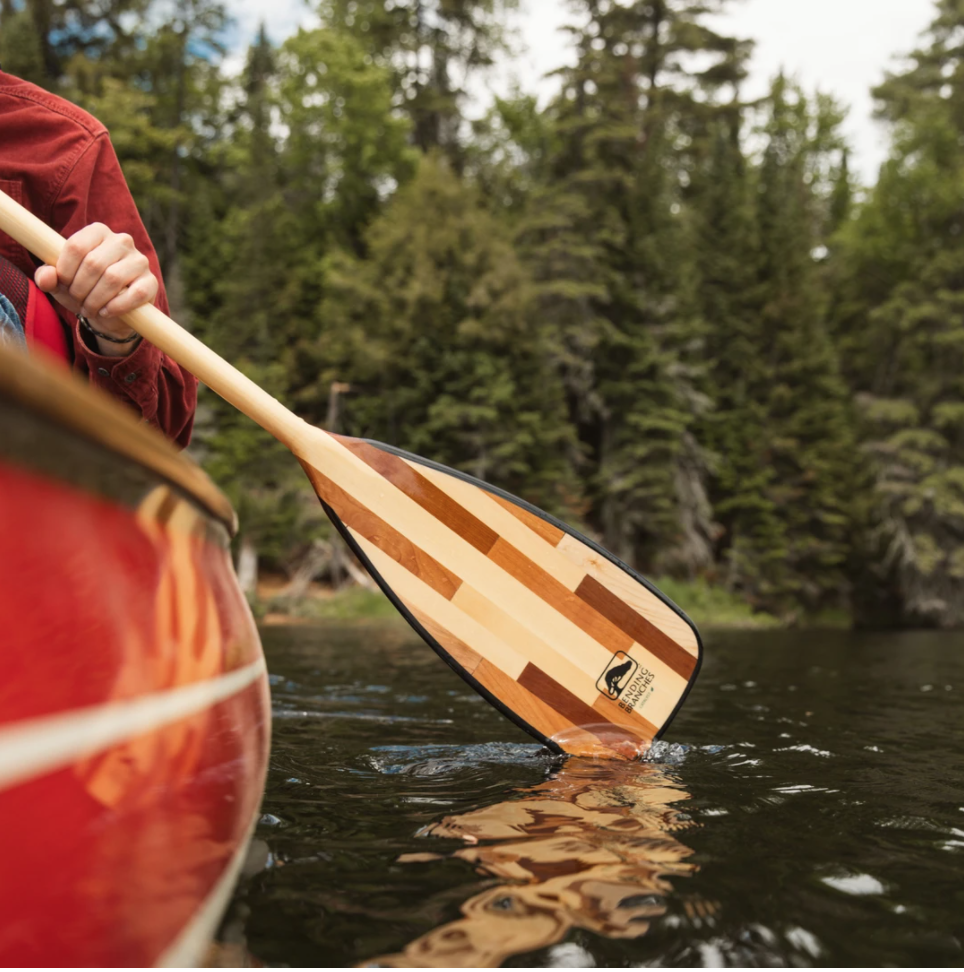
Bending Branches/AquaBound
Paddle maker Bending Branches and its sister company AquaBound are also making strides toward sustainability. “The biggest thing we do is reuse plastics in our kayak paddle blades and wood scraps from canoe paddles,” said Andrew Stern, marketing manager. “We’re also investing heavily into sustainable, eco-friendly fibers and other natural, earth-grown materials to build our paddles, though we’ve yet to find the ideal solution.”
As for resin residuals, most of the resin plastics the company uses in its paddles are recyclable, with the scrap reused in parts such as ferrules, snap-buttons and connection pieces. “Some of those recycled plastics can also be reused in new plastic paddle blades, such as those with a carbon fiber and nylon mix,” he said.
As for wood, which it buys from a Forest Stewardship Council-certified supplier, making canoe paddles uses multiple pieces of wood glued and sanded together, resulting in scrap pieces that it would otherwise discard. “We started reusing those to hand-build our Catalyst canoe paddle, shown above, which is almost entirely made of recycled wood pieces,” he said, adding that leftover wood particles are given to local farmers for cow bedding. As another effort to save wood, the company is going paperless with its internal work order flow and has stopped printing workbooks and catalogs. The company also reuses all incoming void fill and packaging to pack its paddles and moved from plastic bags to a more environmentally friendly option, reducing its waste by 40 percent.
Level6
Canadian paddlesports apparel and SUP maker Level6 is also flying the sustainability flag. This year, said operations manager Kevin Cook, the company has cut down on 20,000 plastic bags by using single bag liners on all of its shipping boxes.
“And we’ve switched almost all packaging to recycled cardboard, and we’ve started rolling and tying our casual wear with extra fabric cutoffs,” he said. “For 2022, we’re also introducing recycled content fabric in our technical and non-technical products. He added that the company also donates one percent of all online sales to watershed conservation organizations. The company also “carbon-neutralizes” the shipping emissions from its direct sales by protecting forests through carbon-monitoring firm Pachama, contributing to projects complying with carbon offset protocols and standards.
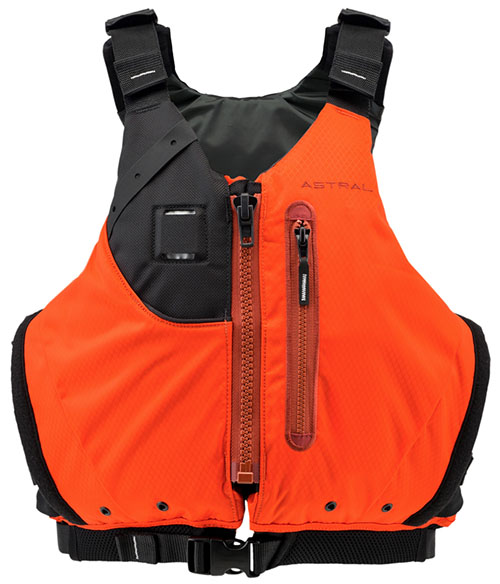
Astral Designs
At Astral Designs, it’s all about saving the planet with its PFDs. Its new Ceiba lifejacket, shown right, is “the most environmentally friendly PFD ever made,” with its naturally buoyant Kapok flotation coming from the Ceiba tree, native to Central and South America. As well as being all-natural, the buoyant material can be manipulated and moved around better than other flotation materials, allowing for a more three-dimensional fit with a recyclable PE foam that provides protection.
Combine this with a recyclable PE foam rear panel for impact protection and an outer shell made from UL and Bluesign-approved 100 percent recycled fabric, and it’s a PFD the company is proud to have in its line-up.
“The first step in preventing damage to water and soil is understanding how chemicals affect them,” said Founder and CEO Philip Curry. Bluesign, with their deep knowledge in textile chemistry, is the partner we need to constantly evaluate our supply chain and prevent harmful chemistry getting into our products.”
Helping the charge to eliminate PVC foam from the PFD industry, Astral also uses recycled polyester in 43 percent of its shoe uppers, uses hemp in many models that require zero pesticides, and uses 75 percent less water than cotton, and is moving from synthetics to naturals wherever it can.
Photos courtesy NRS, Bending Branches/AquaBound, Astral Designs

